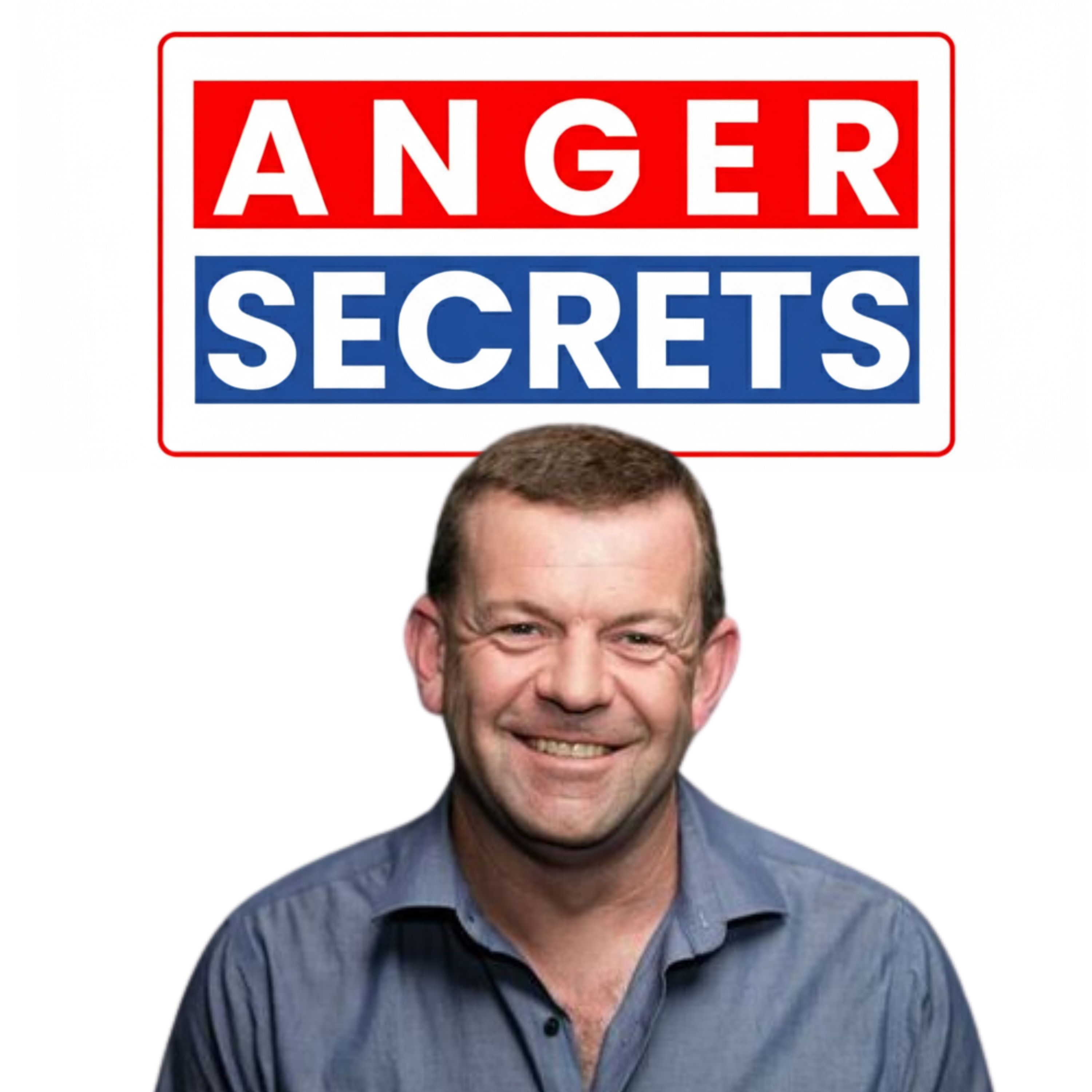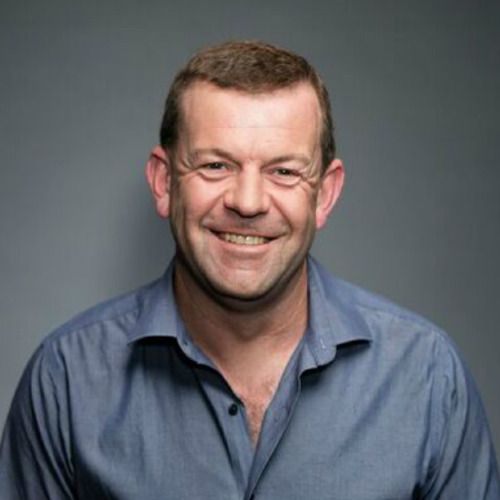Episode 148
148 - Breaking the Cycle of Abuse and Violence
For more information on how to control your anger, visit angersecrets.com.
This episode dives into one of the most difficult but essential topics: understanding how abuse and violence may show up in your life—and how to end the cycle. Anger expert Alastair Duhs speaks with clarity and compassion about behaviors that cause harm, whether through words, control, silence or physical actions.
If you’ve ever questioned the impact of your anger or wondered if your actions have crossed a line, this episode offers a courageous path forward.
Key Takeaways:
-Abuse isn't just physical—it can be verbal, emotional, psychological or sexual, and all forms can leave deep, lasting harm.
-If you’ve used anger to intimidate, control or manipulate, it’s time to look honestly at your behavior and its impact.
-Alastair explains why abuse and violence are the same—because both hurt and control others, often in invisible but devastating ways.
-Taking responsibility for your actions is not a sign of weakness—it’s a brave step toward healing and change.
-True transformation begins with clarity, accountability and the willingness to break old patterns.
-Help is available, and no matter what your past has looked like, it’s never too late to build respectful, safe, and loving relationships.
Links referenced in this episode:
angersecrets.com — Learn more about anger management
angersecrets.com/training — Watch the free training: Control Your Anger in 7 Days
angersecrets.com/course — Enrol in The Complete Anger Management System
Transcript
Let me ask you something.
Speaker A:Have you ever caught yourself in a moment, voices raised or words sharpened and later wondered, did I go too far?
Speaker A:Or maybe you weren't even shouting.
Speaker A:Maybe it was silence, control, or a cold withdrawal that left the room heavy.
Speaker A:Or maybe it's patterns you've never really looked at moments that ended with regret or a sinking feeling after the dust settled.
Speaker A:You want the people you care about to feel safe around you, but something keeps getting in the way.
Speaker A:If you're willing to question yourself, or if you're here looking to understand the impact of your actions, it already shows more courage than you might realize.
Speaker A:Because real change starts the moment you choose to see yourself clearly, without excuses and without hiding from what's uncomfortable.
Speaker A:In this episode, we're not about shaming or blaming.
Speaker A:We're about clarity.
Speaker A:Today I'll name the subtle and obvious ways abuse and violence show up and how you can break free from repeating what hurts the people around you.
Speaker A:By the end of the episode, you'll know not just what needs to stop, but what you can build in its place.
Speaker A:Respect, safety and trust.
Speaker A:Hello, and welcome to episode 148 of the Anger Secrets podcast.
Speaker A:I'm your host, Alistair Dewes, and for over 30 years, I've walked alongside the thousands of men and women who, just like you, wanted to understand their anger, take responsibility for their actions, and build calmer, happier and more loving relationships.
Speaker A:I want to start by acknowledging something important.
Speaker A:If you're here listening to an episode about abuse and violence, it already says something powerful about you.
Speaker A:It means you're willing to face difficult truths.
Speaker A:It means you're taking a courageous step toward change, one many Never take.
Speaker A:After 30 years working with over 15,000 men and women, I know that admitting you've been abusive or violent isn't easy.
Speaker A:Owning those moments when anger took over, when your words wounded, when your actions hurt or controlled those you love, can bring up intense feelings, including guilt, shame, disappointment, and even fear about what comes next.
Speaker A:But here's what I want you to know.
Speaker A:While you can't change the past, you can always choose what you do today.
Speaker A:Because here's the understanding.
Speaker A:The real impact of your actions is where transformation begins.
Speaker A:And when you know better, when you finally see those patterns for what they are, you stop surviving and start choosing something better.
Speaker A:Your courage matters.
Speaker A:It can reshape everything.
Speaker A:It starts here.
Speaker A:Okay, let's start with defining what is abuse?
Speaker A:The usual definition of abuse I use is that abuse is any behaviour you use to control, intimidate, manipulate or.
Speaker A:Or hurt another person.
Speaker A:Now I know this definition may sound harsh, but it's the truth and facing it honestly is the first step if you're serious about ending these patterns.
Speaker A:According to this definition, it is important to note that abuse can take many forms.
Speaker A:For example, in a relationship, abuse may be verbal, emotional, psychological, physical or sexual.
Speaker A:Lets discuss each of these types of abuse, starting with verbal abuse.
Speaker A:So what is verbal abuse?
Speaker A:Verbal abuse involves the use of words to belittle, demean or control another person.
Speaker A:For example, have you ever found yourself putting your partner down, Calling them names or making cruel jokes at their expense?
Speaker A:Blaming them for things they didn't do?
Speaker A:Criticizing them relentlessly, ordering them around, undermining their confidence or threatening them?
Speaker A:If any of these resonate, that's verbal abuse.
Speaker A:Verbal abuse often marks the beginning of a bigger pattern and the impact.
Speaker A:Shame, fear, loss of self worth lasts much longer than any argument.
Speaker A:Next, what is emotional abuse?
Speaker A:Emotional abuse goes beyond words and targets the very emotions, thoughts and perceptions of the victim.
Speaker A:Have you repeatedly belittled or criticised your partner?
Speaker A:Made them feel guilty for things outside their control?
Speaker A:Withheld affection to punish or control?
Speaker A:Monitored their movements or checked up on them constantly?
Speaker A:Threatened to leave or hurt yourself to manipulate them?
Speaker A:If so, that's emotional abuse.
Speaker A:Emotional abuse chips away at your partner's sense of safety and value, often making them doubt their own worth or sanity.
Speaker A:Next, what is psychological abuse?
Speaker A:Psychological abuse involves deliberate patterns of behaviour aimed at undermining a person's mental stability and sense of self.
Speaker A:Maybe you've used guilt, manipulation or blackmail to get your way.
Speaker A:Made your partner feel like they're crazy or overreacting, Accused them of things you know aren't true, Set impossible expectations, refused to speak or withdrawn affection to punish?
Speaker A:Denied things you said or did to confuse or control them?
Speaker A:If so, these tactics are psychological abuse.
Speaker A:They create a world where the other person doubts their own reality and relies on you for what's true.
Speaker A:That's a heavy destructive weight.
Speaker A:Now let's move on to what is physical abuse?
Speaker A:Physical abuse involves any act of physical force against another person that causes harm, injury or fear.
Speaker A:For example, have you ever slapped, punched or kicked your partner?
Speaker A:Broke things or threw objects in anger?
Speaker A:Restrained your partner?
Speaker A:Pushed, shoved or choked your partner?
Speaker A:If so, this is physical abuse.
Speaker A:Physical abuse is never justifiable.
Speaker A:The damage is immediate and the fear it creates is profound.
Speaker A:Even if you have convinced yourself you lost control, the responsibility remains yours.
Speaker A:Finally, let's move on to sexual abuse.
Speaker A:Sexual abuse involves any non consensual sexual act or behaviour forced upon another person.
Speaker A:For example, have you ever coerced or forced your partner into sexual acts?
Speaker A:Pushed for intimacy when your partner couldn't consent?
Speaker A:Ignored requests to use protection during sex?
Speaker A:Criticised your partner's body or pressured them into things they weren't comfortable with?
Speaker A:Or taken sexual images of your partner without their consent?
Speaker A:If so, this is sexual abuse.
Speaker A:Sexual abuse erodes trust and dignity at the deepest level.
Speaker A:If you recognize yourself in any of these examples, you owe it to yourself and anyone you've hurt to seek help.
Speaker A:Okay, let's move on to what is violence?
Speaker A:While violence can be a difficult concept to define, the definition of violence I use Violence is any behavior you use to control, intimidate, manipulate, or hurt another person.
Speaker A:I hope you have listened to that definition closely.
Speaker A:In fact, I will repeat it once more.
Speaker A:Violence is any behavior you use to control, intimidate, manipulate, or hurt another person.
Speaker A:You may notice that you have heard this definition before.
Speaker A:This definition of violence is exactly the same as the definition I gave earlier for abuse.
Speaker A:So why is this?
Speaker A:I define abuse and violence in the same way as in my opinion, there is no difference between abuse and violence.
Speaker A:In other words, abuse and violence are the same things.
Speaker A:This means that if you have acted abusively to your partner, such as by yelling at them, swearing at them, making threats, or putting them down, then you have been violent to them.
Speaker A:This statement is so important.
Speaker A:Let me repeat it once more.
Speaker A:If you have abused your partner, you have been violent to them.
Speaker A:This may be a challenging statement for many people.
Speaker A:For example, many people I work with tell me that they are not violent people.
Speaker A:At the same time, however, they have engaged in verbal, emotional, or psychological abusive behaviour towards their partners.
Speaker A:So why are abuse and violence the same thing?
Speaker A:One way to answer this question is to ask people to think about their childhood.
Speaker A:Many people I work with have experienced abuse or violence as children.
Speaker A:For example, many of my clients have witnessed arguments between their parents while growing up.
Speaker A:They may recall one parent shouting at the other parent, belittling them, or telling them they are good for nothing, worthless, or hopeless.
Speaker A:Many of my clients have also experienced physical abuse as children.
Speaker A:For example, they may have been hit by a parent, had things thrown at them, or been pushed or shoved.
Speaker A:At these times, the abusive parent would usually also say cruel things to my clients, including words that hurt, embarrass, or humiliate them.
Speaker A:When I discuss these events with my clients, I often ask them which had the most effect on them, the physical abuse they suffered or the emotional abuse.
Speaker A:Almost always the answer is emotional abuse.
Speaker A:Emotional abuse, verbal abuse, psychological abuse, and sexual abuse can have the same, if not worse effects than physical violence.
Speaker A:For this reason, I believe there is no difference between abuse and violence.
Speaker A:They both hurt others, make them afraid, or control other people.
Speaker A:If you have acted abusively towards another person, you have engaged in violence towards them.
Speaker A:I know that this may be hard to hear.
Speaker A:If you have acted in abusive ways, you may not think of yourself as a violent person, but you may not be thinking about the effects of your abusive actions.
Speaker A:These effects are likely to be as bad as or worse than the effects of physical violence.
Speaker A:It is important to take responsibility for this violence.
Speaker A:Accepting that you have been violent will allow you to seek help to change your behaviour.
Speaker A:It is an act of courage, not of weakness, to seek help to change your behaviour.
Speaker A:And here's the While you might not be to blame for how you learned these behaviours, you are responsible for stopping them.
Speaker A:If you truly want to create calmer, happier and more respectful relationships, the first step is facing up to these actions and their impact.
Speaker A:This isn't about shame, it's about accountability.
Speaker A:Only then can real change begin.
Speaker A:Finally, if you recognise your actions in any of what we've discussed, know that change is possible.
Speaker A:I've worked with many people who believed they could never be different and I've seen them break free from old patterns one decision at a time.
Speaker A:If you are ready to start your journey towards controlling your anger and building healthier, happier relationships, then please feel free to reach out to me via my website ang angersecrets.com seeking help is not a sign of failure or weakness, it's a sign of strength and self awareness.
Speaker A:You can eliminate abuse and violence from your life and create calmer, happier and more respectful relationships that benefit everyone involved.
Speaker A:Please take the first step today and reach out to me to help you change your behaviour.
Speaker A:To start your journey, just book a free 30 minute anger assessment.
Speaker A:Call with me through my website angersecrets.com the step you take today can change your life and the lives of those you love forever.
Speaker A:Okay, that's it for today's episode.
Speaker A:If this episode was helpful for you, hit that follow button and leave a quick review.
Speaker A:It helps others find the podcast and it might be the exact thing someone else needs right now.
Speaker A:And remember, if you want a free training on how to control your anger or a chance to chat one on one with me, just head over to angersecrets.com there's a free 30 minute call you can book.
Speaker A:No pressure, just a genuine conversation.
Speaker A:And if you're ready to get serious about changing how you show up in your relationship.
Speaker A:Take a look at the complete anger management system@AngerSecrets.com course.
Speaker A:I'd love to help you once and for all.
Speaker A:And finally, remember, you can't control what other people say or do, but you can control yourself, and that's where your real power lives.
Speaker A:Take care and I'll talk to you soon.
Speaker B:The Anger Secrets Podcast is for general informational purposes only and does not constitute the practice of counseling, psychotherapy, or any other professional health service.
Speaker B:No therapeutic relationship is implied or created by this podcast.
Speaker B:If you have mental health concerns of any type of please seek out the help of a local mental health professional.


